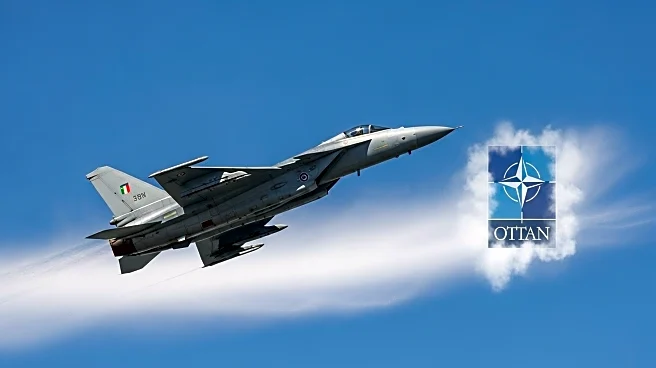What is the story about?
What's Happening?
Three Russian military jets entered Estonia's airspace for 12 minutes, marking an unprecedented incursion according to the Estonian government. This event is part of a series of recent military actions by Russia that have heightened tensions within NATO. The Russian Defense Ministry denied any violation, claiming the jets flew over neutral waters. This incident follows the conclusion of the 'Zapad-2025' joint military exercises between Russia and Belarus, which included nuclear weapon drills. Estonia's Foreign Minister Margus Tsahkna condemned the violation as unacceptable, noting it was the fourth such incident this year. Estonia has summoned the top Russian diplomat to protest and deliver a formal note.
Why It's Important?
The incursion into Estonian airspace is significant as it tests NATO's resolve and readiness amidst ongoing tensions due to the war in Ukraine. Estonia's call for NATO consultations under Article 4 of the alliance's treaty highlights the perceived threat to its security and political independence. The incident has prompted calls for increased air defense capabilities from NATO allies, particularly in frontline states. The event underscores the strategic importance of the Baltic region and the potential for escalation in military confrontations between Russia and NATO member states.
What's Next?
Estonia plans to request NATO consultations under Article 4, which could lead to increased military support and air defenses in the region. NATO's immediate response to intercept the Russian jets demonstrates its commitment to defending member states. The incident may lead to further diplomatic protests and heightened military readiness among NATO countries. The U.S. response, particularly from President Trump, is being closely watched as it could influence NATO's collective stance and actions.
Beyond the Headlines
The violation of Estonian airspace by Russian jets raises broader questions about Russia's military strategy and its willingness to provoke NATO. The incident may reflect Russia's broader geopolitical ambitions and its approach to testing the limits of international airspace regulations. It also highlights the importance of maintaining robust air defense systems and international cooperation among NATO allies to deter potential threats.















